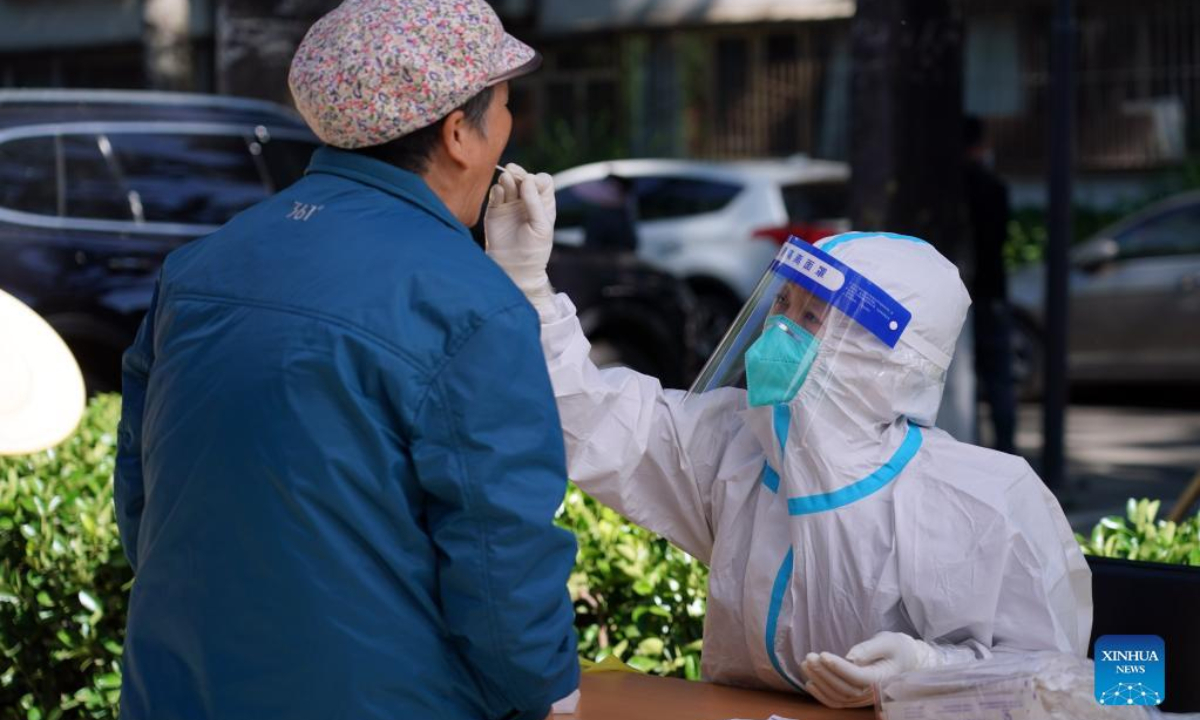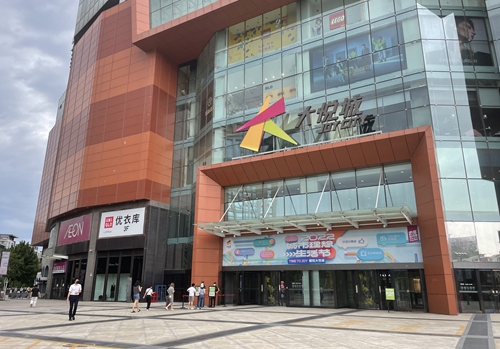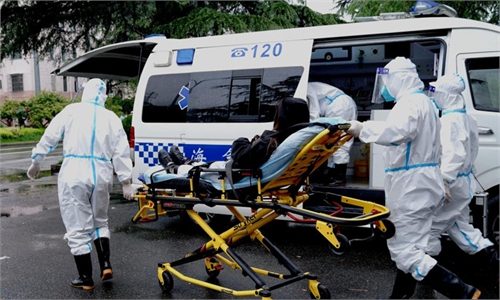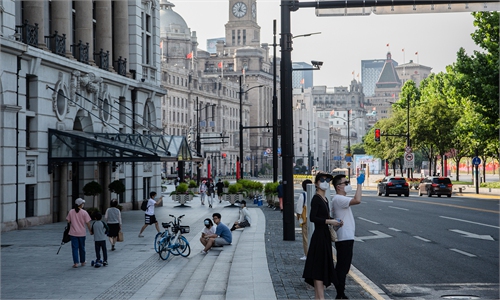
A medic takes a swab sample from a resident for nucleic acid test at a community in Haidian District of Beijing, capital of China, May 13, 2022. Beijing has started three additional rounds of mass nucleic acid testing in 12 districts from Friday to Sunday, as the Chinese capital races against time to contain the latest resurgence of COVID-19 infections. Photo:Xinhua
Beijing's retail businesses and entertainment venues are restarting limited operations on Sunday, as authorities in the Chinese capital moved to relax strict anti-epidemic measures in certain areas as the COVID-19 epidemic situation showed improving signs.In Chaoyang district, the most populous district in Beijing, multiple major shopping malls, including SKP, China World Mall, China Central Place, China Joy City and Solana announced plans to reopen from Sunday with normal checks of health codes and negative nucleic acid test results.
Beijing's authorities announced on Saturday that they would lift quarantine limits for shopping malls in districts that had no reported cases within seven days. But guest volumes at scenic spots are capped at less than 50 percent.
A consumer in SKP surnamed Zhao told the Global Times on Sunday morning that she heard the news of SKP's resumption and she had a day off, so she decided to visit. "I didn't come here to buy something but only wanted the normal experience of shopping in a mall," she said.
Another Beijing resident said that long lines could be seen at the fitting rooms of multiple clothing brands in the China Joy City such as Hollister, Zara and Uniqlo.
"Our operations have returned to normal with all employees on duty, but daily nucleic acid tests are required," a representative from an apparel store in SKP told the Global Times on Sunday, noting that the company's sales had been affected by the closure.
Data from the Beijing Municipal Bureau Statistics showed that the city's social consumption in the first quarter of 2022 dropped 3.5 percent year-on-year to 457.62 billion yuan ($68.32 billion). Total revenue for the catering sector fell by 1.2 percent year-on-year to 35.2 billion yuan.
"The drop was clearly due to the coronavirus, and it will soon get back to normal as businesses step up resumption," said Zhao Jingqiao, director of the Service Economy and Catering Industry Research Center under the Chinese Academy of Social Sciences.
Zhao told the Global Times on Sunday that Beijing's move to allow business resumptions on Sunday was a milestone in fighting against the recent omicron outbreak, which started in late April.
He called for optimizing the current nucleic acid test facilities and taking specific quarantine measures in different venues, based on the experience of the latest outbreak. "Accurate quarantine measures will help the services, catering and entertainment business to reduce their losses if the coronavirus strikes again in future," said Zhao.
Hotels and agritainment in five rural districts were also allowed to accept guests. A bed and breakfast provider in northwest Beijing's Yanqing district told the Global Times on Sunday that their operations were still suspended, and they were waiting for further notices from local authorities.
"Our staff is ready for the resumption, and some restaurants are filing application forms to reopen eat-in services," the person said, adding that he was looking forward to the pent-up consumption after the lockdown.
Meanwhile, a total of 8,893 cinemas across the country opened for business on Saturday, 411 more than the previous day, accounting for 73.56 percent of the total cinemas in the country, according to box office tracker Maoyan.



